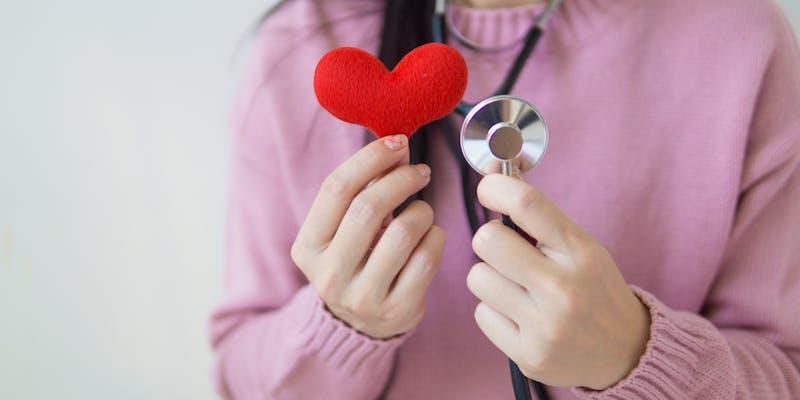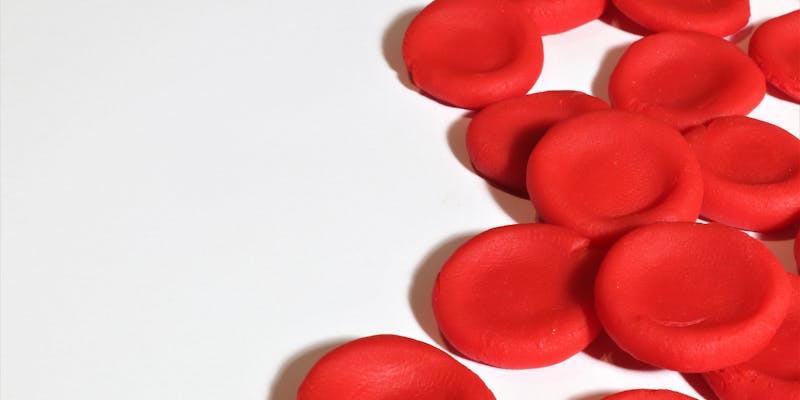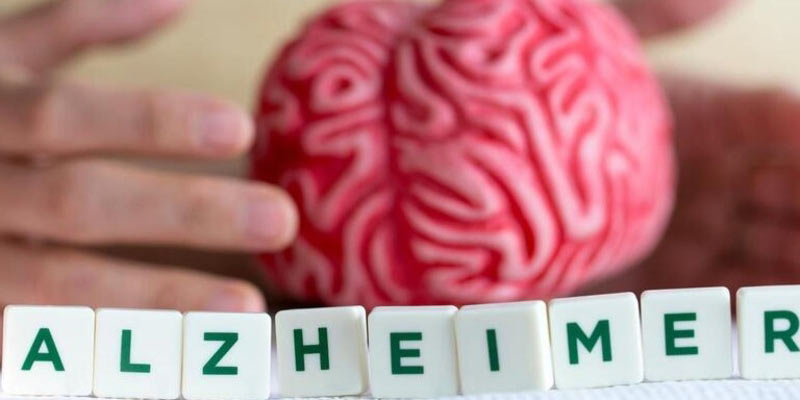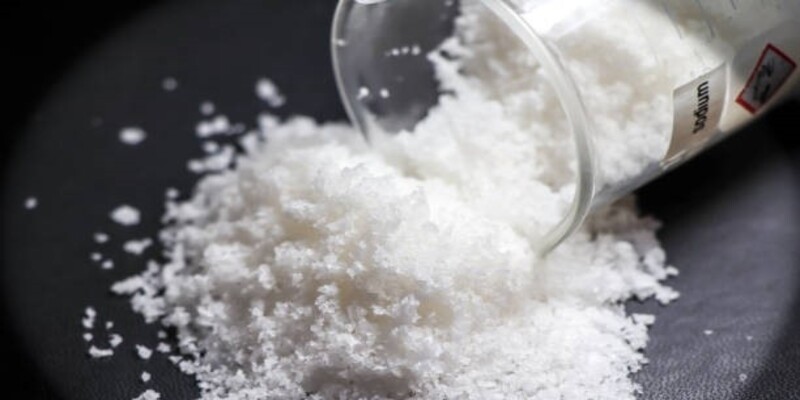Which Body Processes Deplete Iron Stores? Know Everything Here
Mar 29, 2024 By Madison Evans
Iron depletion anemia, a common blood disorder, lacks healthy red blood cells. Tissues receive oxygen from red blood cells. Your body needs iron to make hemoglobin, which helps red blood cells carry oxygen. Iron deficiency anemia can cause fatigue and breathlessness. Iron supplementation is frequently used to cure cough and anemia. Extra testing or therapies are required to diagnose and treat low iron signs.
Symptoms

Iron depletion anemia first appears mild and unrecognized. Iron deficiency increases anemia, worsening symptoms. Low iron signs include:
- Extreme fatigue
- Lightheadedness
- Brittle nails
- Weakness
- Pale skin
- Headache
- Dizziness Cold hands
- Chest pain
- Shortness of breath
- Inflammation
- Unusual cravings for such as ice or dirt
- Fast heartbeat
- Loss of appetite in children
Body Processes that Cause Iron Depletion

Iron deficiency anemia happens when red blood cells cannot transport enough oxygen due to a lack of hemoglobin. Different reasons might affect physiological processes, causing this deficiency. To manage and prevent cough and anemia you must understand its causes and how they affect basic functions.
Blood Loss
Blood loss contributes to iron deficiency anemia by affecting red blood cells' iron reserves. Significant blood loss, whether or not from external trauma or internal reasons, will increase the risk of iron deficiency anemia. Heavy menstruators are also at risk for this sort of perimenopause anemia symptoms because of month-to-month blood loss. Blood loss without sufficient alternatives can cause a slow depletion of iron reserves, increasing the threat of iron insufficiency.
Iron deficiency anemia can worsen with inner bleeding from peptic ulcers, hiatal hernias, or colorectal cancer. These problems may also cause persistent gastrointestinal blood loss, depleting iron stores and restricting iron uptake. Regular use of over-the-counter medicines for perimenopause anemia symptoms, such as aspirin and NSAIDs, might worsen gastrointestinal bleeding and decrease iron reserves. Chronic blood loss from those drugs could possibly worsen iron repute and increase the chance of iron deficiency anemia.
In response to blood loss, the body produces greater red blood cells to deliver extra oxygen. This compensating mechanism requires enough iron for hemoglobin production. Anemia develops while low iron levels affect the body's cellular production of crimson blood.
Dietary Iron Deficiency
Food selections are important to preserving iron ranges, as iron deficiency anemia can result from insufficient iron intake. Iron deficiency anemia can result from a low-iron diet. Meat, eggs, dark green leafy vegetables, and iron-fortified products are great sources of iron and help maintain iron balance. Add these foods to your diet to get enough iron for hemoglobin synthesis and prevent cough and anemia:
- Eggs
- Iron-fortified bread or cereals
- Dark-green leafy vegetables
- Brown rice
- Seeds and Nuts
- Beans and pulses
- Tofu, fish and meat
- Apricots
- Raisins
Vegetarianism and ric-caffeine diets lacking iron-wealthy ingredients can increase the risk of iron deficiency. Heme iron, the more easily absorbed shape of iron observed in animal products, won't be found in vegetarian diets, so vegetarians must plan their meals to encompass legumes, tofu, and fortified cereals.
Dietary enhancers and inhibitors additionally affect the absorption of iron signs. Some plant-based ingredients contain phytates and tannins, inhibiting iron absorption, while Vitamin C complements it. Thus, a balanced iron-rich weight loss program and iron enhancers can improve iron absorption and reduce the danger of iron deficiency anemia. Eating iron-rich foods
Adding iron enhancers can enhance iron absorption and status.
Babies and young children are more vulnerable to the negative consequences of iron deficiency on their growth and brain development. Early intervention and nutritional assistance are crucial in stopping growth and development delays in children due to iron deficiency. For proper growth and development, it's essential to get sufficient iron through nursing, iron-fortified foods, and iron-rich supplemental food.
Low Iron Absorption
Iron absorption in the small gut is critical for body iron absorption stages. Disruption of this absorption procedure can cause iron deficiency anemia. Even with a healthy food regimen, celiac disease, which affects the intestinal lining and nutrient absorption, can lessen iron absorption. Despite nutritional efforts, celiac ailment can impair iron absorption, causing cough and anemia. Surgical processes that restrict or eliminate small gut elements can also lessen iron storage and absorption.
Iron absorption issues make it difficult to replenish iron absorption and produce hemoglobin, which transports oxygen in red blood cells. Despite a healthy diet plan, iron-poor humans may also experience weakness, fatigue, and low iron signs. Iron absorption regulations require gastrointestinal issues to be addressed. Healthcare experts can optimize iron delivery with supplementation and weight-loss diet changes. Treating iron deficiency anemia symptoms and stopping headaches requires addressing the reason for bad iron absorption and maximizing iron intake.
Pregnancy
Maternal blood volume and metabolic needs increase during pregnancy to support the development of the fetus. Thus, the mom and fetus need more iron signs and sources for hemoglobin synthesis. Many pregnant women get iron deficiency anemia if they do not take iron supplements.
Iron deficiency Anemia in pregnant ladies results from iron depletion as the body meets the increased call for this vital nutrient. Without enough iron, the body struggles to produce hemoglobin, lowering red blood cell oxygen capacity. This deficiency harms the mom and fetus.
Hemoglobin transports oxygen from the lungs to body tissues and organs. Insufficient hemoglobin, resulting from iron deficiency anemia, can impair oxygen transport, threatening fetal health and improvement. Iron deficiency at some stage in pregnancy can cause intrauterine growth restriction, low beginning weight, and preterm delivery.
Pregnant ladies must get normal iron checks and supplementation to avoid cough and anemia. Regular monitoring helps doctors detect and treat iron deficiency early, preventing headaches for mom and child. During pregnancy, iron dietary supplements fill depleted iron stores and help optimal hemoglobin synthesis, ensuring sufficient oxygen for the mother and fetus.
Complications of Iron Depletion
While iron deficiency anemia hardly causes long-term effects, it may affect the heart and lungs, as well as the cardiovascular and breathing systems. Adults with intense cough and anemia might also have coronary heart and lung fitness troubles. People may additionally acquire tachycardia, a surprisingly rapid heartbeat.
Restless legs syndrome (RLS) is another result of iron deficiency anemia, which can cause some cases of secondary RLS. RLS is a common neurological infection that causes extreme leg movement and aches in the feet, calves, and thighs; when RLS is caused by iron deficiency anemia, iron supplements commonly help.







